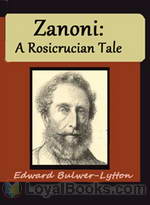|
Books Should Be Free Loyal Books Free Public Domain Audiobooks & eBook Downloads |
|
|
Books Should Be Free Loyal Books Free Public Domain Audiobooks & eBook Downloads |
|
Top Authors |
|---|
|
Book type:
Sort by:
|
By: Mack Reynolds (1917-1983) | |
|---|---|
 Expediter
Expediter
| |
By: LibriVox volunteers | |
|---|---|
 The Yellow Sheet – the NaNoWriMo project 2007
The Yellow Sheet – the NaNoWriMo project 2007
An atomic bomb explodes in the mountains of Montana. But was there really a bomb? And was it really in Montana, or in Tokyo? Are Liz and Elizabeth the same woman, is she married with children, is her husband a spy? | |
By: Margaret Warner Morley (1858-1923) | |
|---|---|
 The Insect Folk
The Insect Folk
Through delightful outings with her students, a teacher introduces her class to the fascinating world of insects. She encourages her students to observe and ask questions. This is a wonderful science text for young children. | |
 The Renewal of Life; How and When to Tell the Story to the Young
The Renewal of Life; How and When to Tell the Story to the Young
| |
By: Cornelia Mee | |
|---|---|
 Exercises in Knitting
Exercises in Knitting
Mrs. Mee, her husband, and her sister ran a yarn and needlework import/warehouse business in Bath, England. Her books primarily contain practical everyday items that knit up quickly with the busy homemaker in mind. At this time, published knitting “receipts” did not contain abbreviations and were laborious to use. They were, however, rich in error! Later in her career, due to circumstances of war and the resulting social stress and poverty, many of her knitting books were printed for ladies’ charitable societies, which used her knitting “receipts” to clothe the poor mill workers who were out of work due to the American Civil War and the embargo of cotton. | |
By: Adelbert von Chamisso (1781-1838) | |
|---|---|
 Peter Schlemihl
Peter Schlemihl
| |
 Peter Schlemihl
Peter Schlemihl
| |
By: Gotthold Ephraim Lessing (1729-1781) | |
|---|---|
 Miss Sara Sampson
Miss Sara Sampson
G.E. Lessing, widely regarded by students of theater as the world's first dramaturg, was also one of the first proponents of the German bourgeois tragedy. Miss Sara Sampson, in which a young woman runs off with a ne'er-do-well who is still entangled with his former mistress, was a reaction against the Voltarian verse drama popular in the eighteenth century. | |
 Nathan the Wise; a dramatic poem in five acts
Nathan the Wise; a dramatic poem in five acts
| |
 Minna Von Barnhelm
Minna Von Barnhelm
| |
By: Benjamin L. (Benjamin Leonard) D'Ooge (1860-1940) | |
|---|---|
 Latin for Beginners
Latin for Beginners
| |
By: Hendrik Conscience (1812-1883) | |
|---|---|
 The Amulet
The Amulet
| |
 The Poor Gentleman
The Poor Gentleman
| |
By: Isabella L. Bird | |
|---|---|
 The Englishwoman in America
The Englishwoman in America
Isabella Bird travels abroad in Canada and the United States in the 1850s. As an Englishwoman and a lone female, she travels as far as Chicago, Prince Edward Island, and Cincinatti. Her observations on the trials and tribulations of the journeys are astute, if formed by her place and time in history. Adventures with pickpockets, omnibuses, cholera, and rat invested hotels deter her not. (Sibella Denton) | |
By: Lao Tzu | |
|---|---|
 Laotzu's Tao and Wu Wei
Laotzu's Tao and Wu Wei
The classic of the Way and of High Virtue is the Tao Teh Ching. Its author is generally held as a contemporary of Confucius, Lao Tzu, or Laozi. The exact date of the book’s origin is disputed. The book is divided into two parts, the Upper Part and the Lower Part. The Upper Part consists of chapters 1-37, and each chapter begins with the word “Tao,” or the Way. The Lower Part consists of chapters 38-81, and each chapter begins with the words “Shang Teh,” or High Virtue. This 1919 edition names the Lower Part as the Wu Wei, or translated variously as “not doing,” “non-ado,” or “non-assertion... | |
By: D. H. Lawrence (1885-1930) | |
|---|---|
 Fantasia of the Unconscious
Fantasia of the Unconscious
| |
 Aaron's Rod
Aaron's Rod
Flutist Aaron Sisson is caught up in the aftermath of WWI. A lost soul, he attempts to find himself in the comfort of bar-room talk and alcohol and a woman. Moving on, he spends time with a mining executive's relatives. But he finds the family a stuffy middle-class lot, bored with each other and themselves. He leaves his wife and children and strikes out for the open road. During a playing engagement at an opera performance, he reunites with the mining executive's family. Talk is of love and war, none of it very satisfying to anyone... | |
 Lost Girl
Lost Girl
"There is no mistake about it, Alvina was a lost girl. She was cut off from everything she belonged to." In this most under-valued of his novels, Lawrence once again presents us with a young woman hemmed in by her middle-class upbringing and (like Ursula Brangwen in The Rainbow) longing for escape. Alvina Houghton's plight, however, is given a rather comic and even picaresque treatment. Losing first her mother, a perpetual invalid, and later her cross-dressing father, a woefully ineffectual small-scale entrepreneur, Alvina feels doomed to merge with the tribe of eternal spinsters who surround her in the dreary mining community of Woodhouse... | |
 The Prussian Officer
The Prussian Officer
| |
 Look! We Have Come Through!
Look! We Have Come Through!
| |
 New Poems
New Poems
| |
 Bay A Book of Poems
Bay A Book of Poems
| |
 Wintry Peacock
Wintry Peacock
| |
By: George L. Apperson (1857-1937) | |
|---|---|
 The Social History of Smoking
The Social History of Smoking
This work tells the history of smoking in England from the social point of view. Thus it does not deal with the history of tobacco growing or tobacco related manufacture, but is rather the story of how smoking has fitted in with the fashions and customs throughout the ages, and the changes in the attitude of society towards smoking. | |
By: Pu Songling (1640-1715) | |
|---|---|
 Strange Stories From a Chinese Studio
Strange Stories From a Chinese Studio
MANUAL OF SURGERY, OXFORD MEDICAL PUBLICATIONSBY ALEXIS THOMSON, F.R.C.S.Ed.PREFACE TO SIXTH EDITION Much has happened since this Manual was last revised, and many surgical lessons have been learned in the hard school of war. Some may yet have to be unlearned, and others have but little bearing on the problems presented to the civilian surgeon. Save in its broadest principles, the surgery of warfare is a thing apart from the general surgery of civil life, and the exhaustive literature now available on every aspect of it makes it unnecessary that it should receive detailed consideration in a manual for students... | |
By: Edward George Bulwer-Lytton (1803-1873) | |
|---|---|
 Zanoni
Zanoni
Zanoni, a timeless Rosicrucian brother, cannot fall in love without losing his power of immortality; but he does fall in love with Viola Pisani, a promising young opera singer from Naples, the daughter of Pisani, a misunderstood Italian violinist. An English gentleman named Glyndon loves Viola as well, but is indecisive about proposing marriage, and then renounces his love in order to pursue occult study. The story develops in the days of the French Revolution in 1789. Zanoni has lived since the Chaldean civilization... | |
 Athens: Its Rise and Fall
Athens: Its Rise and Fall
| |
 Harold : the Last of the Saxon Kings
Harold : the Last of the Saxon Kings
| |
 What Will He Do with It?
What Will He Do with It?
| |
 Rienzi, Last of the Roman Tribunes
Rienzi, Last of the Roman Tribunes
| |
 A Strange Story
A Strange Story
| |
 Alice, or the Mysteries
Alice, or the Mysteries
| |
 Eugene Aram
Eugene Aram
| |
 The Last of the Barons
The Last of the Barons
| |
 The Pilgrims of the Rhine
The Pilgrims of the Rhine
| |
 Ernest Maltravers
Ernest Maltravers
| |
 Pausanias, the Spartan The Haunted and the Haunters, an Unfinished Historical Romance
Pausanias, the Spartan The Haunted and the Haunters, an Unfinished Historical Romance
| |
 The Works Of Edward Bulwer-Lytton
The Works Of Edward Bulwer-Lytton
| |
 Kenelm Chillingly
Kenelm Chillingly
| |
 Leila or, the Siege of Granada
Leila or, the Siege of Granada
| |
 The Disowned
The Disowned
| |
 Devereux
Devereux
| |
 Lucretia
Lucretia
| |
 Night and Morning
Night and Morning
| |